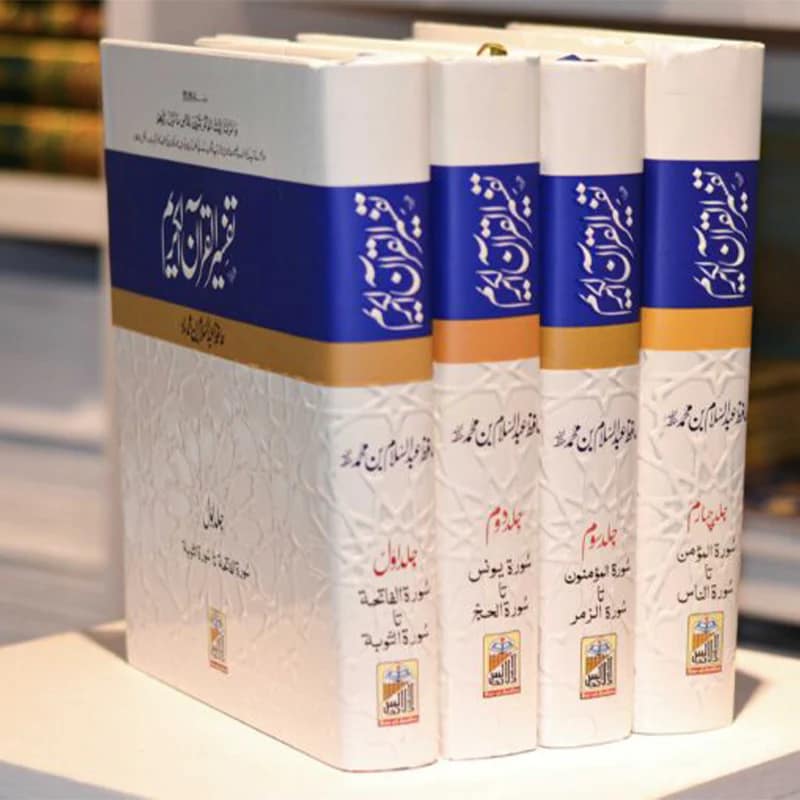Deepening Your Understanding of the Holy Text
The Quran is a divine book that serves as a guide for humanity, offering wisdom, laws, and moral principles. However, understanding its deeper meanings requires more than just reading the Arabic text—it calls for Tafseer-ul-Quran, the scholarly interpretation of the Holy Quran. Tafseer provides context, historical background, and explanations that allow believers to fully grasp the messages and commandments of Allah (SWT). By exploring Tafseer-ul-Quran, one can deepen their understanding of the divine text, making it easier to apply its teachings in daily life. In this article, we will discuss the significance of Tafseer, the different methodologies used, and how it can help Muslims strengthen their faith and connection with the Quran.
What is Tafseer-ul-Quran?
Tafseer-ul-Quran refers to the detailed explanation and interpretation of the Quran, which helps in understanding its true meanings. The Quran was revealed in Arabic over 23 years, addressing various situations and challenges faced by the early Muslim community. Without Tafseer, it can be difficult to comprehend the historical context, linguistic nuances, and intended messages of the verses.
Scholars of Islam have dedicated their lives to studying and interpreting the Quran using reliable sources such as:
- The Quran itself (cross-referencing verses)
- Hadith (the sayings and actions of Prophet Muhammad ﷺ)
- The opinions of the Sahabah (companions of the Prophet)
- Linguistic analysis of classical Arabic
- Historical context and scholarly insights
Through Tafseer, believers can unlock the Quran’s wisdom and apply its guidance to modern-day challenges.
The Importance of Tafseer in Understanding the Quran
1. Clarifies Ambiguous Verses
Some verses of the Quran may appear unclear or complex without proper explanation. Tafseer helps clarify such verses by providing historical background and scholarly insights. For instance, the verse:
“And establish prayer and give Zakat and bow with those who bow [in worship and obedience].” (Surah Al-Baqarah 2:43)
While the command to pray and give charity is clear, Tafseer helps explain how these acts of worship should be performed, based on the practices of Prophet Muhammad ﷺ.
2. Provides Historical Context
Many Quranic verses were revealed in response to specific events. Tafseer delves into these historical contexts to give a fuller understanding. For example, Surah Al-Fil narrates the story of Abraha’s army and the destruction of the elephants, which is better understood through the historical background provided in Tafseer.
3. Guides in Practical Application
The Quran contains divine laws and moral guidance, but Tafseer helps translate these principles into practical action. For example, Islamic rulings on marriage, business ethics, and justice are all explained in detail through Tafseer.
4. Strengthens Iman (Faith)
By understanding the deeper meanings of the Quran, believers develop a stronger connection with Allah (SWT). Tafseer inspires Muslims to reflect on the divine wisdom and apply it to their daily lives.

Types of Tafseer: Different Approaches to Understanding the Quran
There are several methodologies that scholars use to interpret the Quran, each offering unique insights:
1. Tafseer bil-Ma’thur (Interpretation by Narrations)
- This approach relies on the Quran itself, Hadith, and sayings of the Sahabah to explain verses.
- Example: Ibn Kathir’s Tafseer is one of the most widely respected works following this method.
2. Tafseer bil-Ra’y (Interpretation by Reasoning)
- Scholars use logic and linguistic analysis to explain Quranic meanings.
- This method is only valid if it aligns with Islamic principles and does not contradict authentic sources.
3. Tafseer Ishari (Mystical Interpretation)
- Some scholars provide spiritual insights into the Quran, explaining its deeper, mystical meanings.
- Example: Sufi scholars often explore the Quran’s messages about the soul and inner purification.
4. Modern Tafseer
- Contemporary scholars interpret the Quran in relation to modern-day science, social issues, and technology.
- Example: Some Tafseers discuss how the Quran’s descriptions of embryology align with modern scientific discoveries.
Each of these approaches contributes to a well-rounded understanding of the Quran, helping Muslims grasp its meanings from multiple perspectives.
How to Study Tafseer-ul-Quran Effectively
1. Choose a Reliable Tafseer Book
It’s crucial to refer to authentic Tafseer books written by reputable scholars. Some of the most widely recognized ones include:
- Tafseer Ibn Kathir (by Imam Ibn Kathir)
- Tafseer Al-Jalalayn (by Jalal ad-Din al-Mahalli and Jalal ad-Din as-Suyuti)
- Tafseer As-Sa’di (by Sheikh Abdurrahman As-Sa’di)
2. Learn Arabic or Use Trusted Translations
Since the Quran was revealed in Arabic, learning the language helps in understanding its true meanings. However, for non-Arabic speakers, reading trusted English or Urdu translations alongside Tafseer can be beneficial.
3. Listen to Scholars and Online Lectures
Many Islamic scholars provide online Tafseer courses and video lectures, making it easier to study the Quran from home. Some well-known scholars in Tafseer include:
- Dr. Israr Ahmed
- Mufti Menk
- Nouman Ali Khan
4. Reflect and Apply the Teachings
Tafseer should not be studied just for knowledge—it should transform a believer’s actions and character. Reflect on the teachings and apply them in daily life.
Conclusion
Exploring Tafseer-ul-Quran: Deepening Your Understanding of the Holy Text is an essential journey for every Muslim. Tafseer not only clarifies the meanings of Quranic verses but also provides historical context, practical guidance, and spiritual insights that help believers live according to Allah’s commands. By using authentic Tafseer sources, listening to scholars, and applying Quranic teachings, one can develop a deeper connection with the Holy Quran.



Leave Your Comments